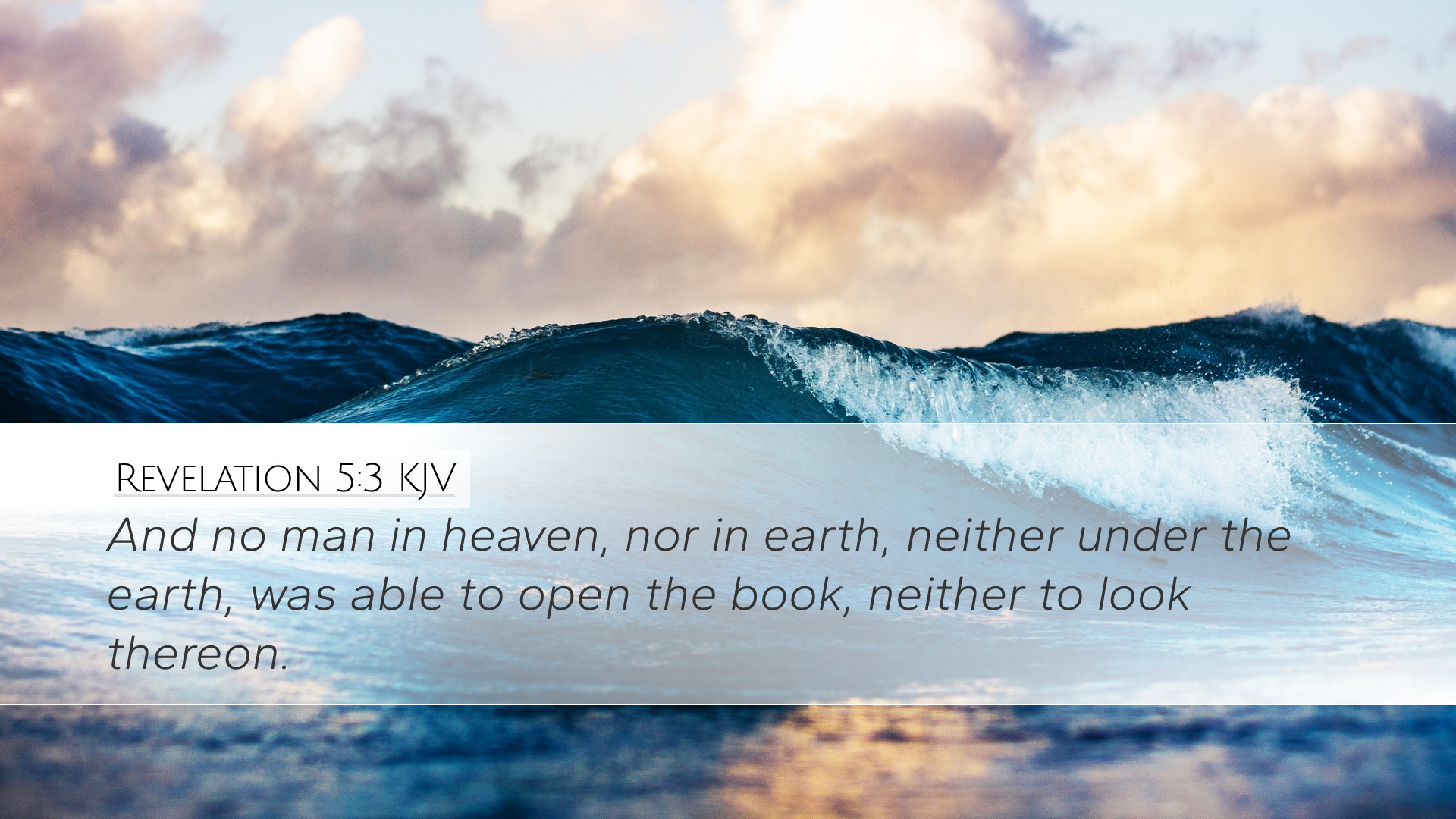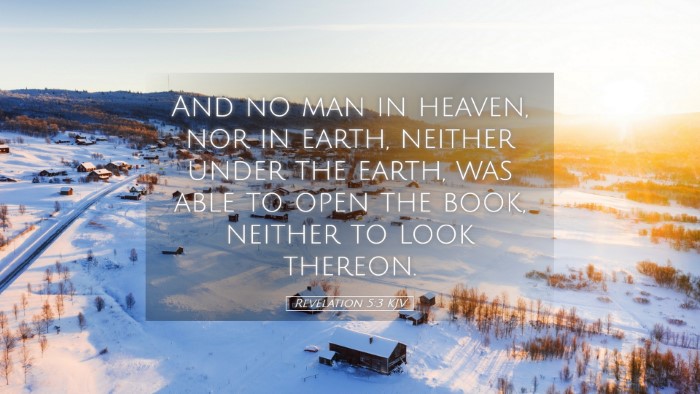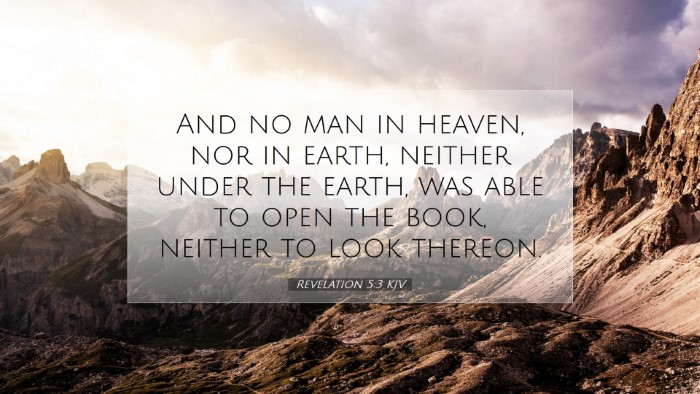Commentary on Revelation 5:3
Verse Context: Revelation 5:3 states, "And no one in heaven or on the earth or under the earth was able to open the scroll or to look into it." This verse is situated within a profound narrative that unveils the sovereignty of Christ and the unfolding of God's redemptive plan for creation.
General Overview
This verse occurs in a critical moment in the Book of Revelation, reflecting the unworthiness of all created beings to execute God's divine plan. The scroll represents the unfolding of history and the eschatological events that lead to the ultimate realization of God’s kingdom.
Insights from Matthew Henry
Matthew Henry emphasizes the total incapacity of all creation to open the scroll. He notes:
- Universal Despair: No angel, human, or creature could grasp the significance of the scroll, illustrating humanity's affliction and fallen state.
- The Scroll's Importance: The scroll symbolizes the revelation of God's will, and its sealing signifies the mystery and sealed plans of God that await revelation.
- Divine Sovereignty: The passage underscores God’s supreme authority, indicating that all power to execute His plan rests solely with Him.
Insights from Albert Barnes
Albert Barnes provides a thorough examination of the implications of this verse, suggesting the following points:
- The Seal and Its Meaning: Barnes elaborates on the significance of the scroll being sealed, implying that no human wisdom or effort can unravel the mystery of divine providence.
- Search for a Worthy One: The absence of anyone capable of opening the scroll indicates a desperate search for a redeemer and exposes the limitations of humanity.
- Affirmation of Christ’s Authority: This incapacity also sets the stage for Christ’s unique role as the Lamb who is worthy to take the scroll, highlighting His redemptive nature.
Insights from Adam Clarke
Adam Clarke offers a scholarly interpretation of the deeper meanings embodied in this verse:
- Comprehensive Suffering: Clarke suggests that the inability to open the scroll reflects the universal implications of human suffering and the need for divine intervention.
- Symbolism of the Scroll: He articulates that the scroll signifies divine mandates and the governance of God, accentuating the importance of open communication between God and His creation.
- Christ's Qualifications: Clarke points out the significance of Christ alone being worthy, reminding readers of His dual nature as fully God and fully man, enabling Him to advocate for humanity's redemption.
Theological Implications
The verse poses several theological considerations:
- The Total Depravity of Humanity: It highlights the fallen state of creation and underscores the need for a Savior.
- Christ’s Unique Role: It anticipates the revelation of Christ as the only one competent to fulfill God's redemptive plan.
- The Hope of Redemption: While it reflects despair, it simultaneously promises hope in the Lamb who is worthy, alluding to the eventual opening of the scroll in later passages.
Application for Pastors and Theologians
This verse offers crucial insights for pastors and theologians alike:
- Preach the Need for a Savior: This serves as a reminder to emphasize humanity's need for Christ in sermons and teachings.
- Celebrate Christ’s Worthiness: Pastoral messages can focus on Christ’s role as the Redeemer who alone can execute God’s will.
- Encourage Deep Study: The complexity of prophetic literature invites scholars and students to engage deeply with scripture, exploring themes of hope, redemption, and divine sovereignty.
Conclusion
Revelation 5:3 stands as a profound marker of the need for a Redeemer in a world unable to solve its own plight. It sets the stage for the triumphant revelation of Jesus Christ as the Lamb, encouraging believers to place their faith in His redemptive power. The insights from Henry, Barnes, and Clarke enrich our understanding of this passage, leading to a deeper appreciation of the sovereignty of God in the unfolding narrative of history.


